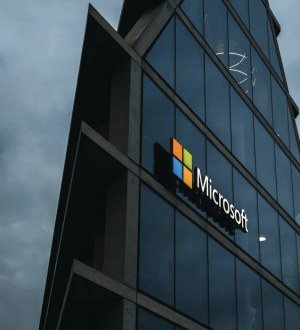Worried about your online safety? Here's what the latest Microsoft cyberattack could mean for you
By
Veronica E.
- Replies 0
Disclaimer:This is a developing story. Information included in this article reflects what was available at the time of publication and may be subject to change as new details emerge. Readers are encouraged to check official sources for the most up-to-date guidance.
With headlines once again spotlighting a major cyberattack, many Americans are left wondering just how secure their personal data really is.
In a widespread breach targeting Microsoft SharePoint servers, hackers have compromised systems used by government agencies, energy companies, and other critical institutions.
While it may sound like something only tech experts need to worry about, the fallout from this attack could have broader implications for everyday users.
Whether you use Microsoft tools at work or rely on them at home, it’s worth understanding what happened—and how you can protect yourself.
Here's what we know so far and why it matters.

A hidden flaw gave hackers a way in
Microsoft’s SharePoint platform is used by businesses and government agencies to manage and share documents internally.
But in a recent cyberattack, hackers exploited what’s known as a “zero-day” vulnerability—an unknown flaw that was taken advantage of before anyone could fix it.
The result? Tens of thousands of on-premises SharePoint servers were compromised across the globe.
While cloud-based Microsoft services like Microsoft 365 appear to be safe for now, organizations using in-house servers may still be at risk.
Authorities are calling the breach “unprecedented.”
Investigators in the US, Australia, and Canada are working together to understand the scope of the attack.
Microsoft had patched a different vulnerability earlier this month, but these hackers found a new entry point before anyone saw it coming.
Also read: You could lose access to all your accounts soon—Microsoft's urgent warning that you can't afford to ignore!
What’s at stake—and who’s been hit
Reports say at least two US federal agencies were affected, though officials haven’t released many details.
SharePoint is often connected to tools like Outlook and Teams, raising concerns that hackers could have accessed email records, passwords, or confidential files.
The real danger lies in the possibility that cybercriminals stole digital “keys,” which could allow them to return even after systems are updated.
At this stage, no one knows exactly who’s behind the breach.
But security experts agree: the attackers moved quickly and efficiently, targeting vulnerable systems before protective measures were in place.
Also read: A new online shopping scam is fooling even careful buyers—here's how to avoid it
This isn’t Microsoft’s first major breach
If this story sounds familiar, there’s a reason.
In 2023, a cyberattack tied to Chinese hackers exposed sensitive US government emails.
And last year, a SharePoint vulnerability was used to steal the personal data of 4.3 million Americans from the health services company HealthEquity.
These incidents show how even trusted technology providers can fall short on cybersecurity—and how the damage can affect real people in serious ways.
From Social Security numbers to medical records, data breaches can lead to identity theft, fraud, and long-term stress for those affected.
Also read: A wave of tech issues could hit soon—are your devices on the list?
What you can do to stay protected
While these headlines can be unsettling, there are steps you can take today to help secure your personal information and devices:

Also read: Are your credit card details at risk? How this woman narrowly avoided a dangerous new Facebook scam
Why this matters to everyone—not just tech experts
It’s easy to assume these kinds of breaches only affect high-level government agencies or major corporations.
But in today’s digital world, everything is connected.
When a large system is compromised, it can create ripple effects that reach individuals—whether it’s your health provider, your financial institution, or your employer.
That’s why staying informed and prepared is so important.
Many older adults have seen incredible changes in technology over the past few decades.
We’ve traded landlines for smartphones and filing cabinets for cloud storage.
But with those changes come new responsibilities. Protecting your data is now just as important as locking your front door.
Staying safe online doesn’t require you to be an expert—it just takes a little caution and a willingness to stay informed.
Read next: The FBI just revealed two words that signal you're being scammed—find out now!

Have you ever been notified of a data breach? Do you have go-to tips for staying secure online? Your experiences could help someone else stay a step ahead. Feel free to share your thoughts or questions in the comments—we’d love to hear from you!
With headlines once again spotlighting a major cyberattack, many Americans are left wondering just how secure their personal data really is.
In a widespread breach targeting Microsoft SharePoint servers, hackers have compromised systems used by government agencies, energy companies, and other critical institutions.
While it may sound like something only tech experts need to worry about, the fallout from this attack could have broader implications for everyday users.
Whether you use Microsoft tools at work or rely on them at home, it’s worth understanding what happened—and how you can protect yourself.
Here's what we know so far and why it matters.

Cybersecurity concerns continue to grow as experts respond to the latest Microsoft server breach. Image Source: Pexels / Salvatore De Lellis.
A hidden flaw gave hackers a way in
Microsoft’s SharePoint platform is used by businesses and government agencies to manage and share documents internally.
But in a recent cyberattack, hackers exploited what’s known as a “zero-day” vulnerability—an unknown flaw that was taken advantage of before anyone could fix it.
The result? Tens of thousands of on-premises SharePoint servers were compromised across the globe.
While cloud-based Microsoft services like Microsoft 365 appear to be safe for now, organizations using in-house servers may still be at risk.
Authorities are calling the breach “unprecedented.”
Investigators in the US, Australia, and Canada are working together to understand the scope of the attack.
Microsoft had patched a different vulnerability earlier this month, but these hackers found a new entry point before anyone saw it coming.
Also read: You could lose access to all your accounts soon—Microsoft's urgent warning that you can't afford to ignore!
What’s at stake—and who’s been hit
Reports say at least two US federal agencies were affected, though officials haven’t released many details.
SharePoint is often connected to tools like Outlook and Teams, raising concerns that hackers could have accessed email records, passwords, or confidential files.
The real danger lies in the possibility that cybercriminals stole digital “keys,” which could allow them to return even after systems are updated.
At this stage, no one knows exactly who’s behind the breach.
But security experts agree: the attackers moved quickly and efficiently, targeting vulnerable systems before protective measures were in place.
Also read: A new online shopping scam is fooling even careful buyers—here's how to avoid it
This isn’t Microsoft’s first major breach
If this story sounds familiar, there’s a reason.
In 2023, a cyberattack tied to Chinese hackers exposed sensitive US government emails.
And last year, a SharePoint vulnerability was used to steal the personal data of 4.3 million Americans from the health services company HealthEquity.
These incidents show how even trusted technology providers can fall short on cybersecurity—and how the damage can affect real people in serious ways.
From Social Security numbers to medical records, data breaches can lead to identity theft, fraud, and long-term stress for those affected.
Also read: A wave of tech issues could hit soon—are your devices on the list?
What you can do to stay protected
While these headlines can be unsettling, there are steps you can take today to help secure your personal information and devices:
- Check with your workplace or agency
If you work for an organization using SharePoint, ask your IT department whether your system was affected. Urge them to apply Microsoft’s latest security updates. - Keep everything updated
Make sure your software—whether at home or at work—is up to date. Updates often contain critical fixes for known vulnerabilities. - Change your passwords
If you’re worried your data might have been exposed, update your passwords now. Use a mix of letters, numbers, and symbols, and don’t reuse the same password across accounts. - Use two-factor authentication
Adding this extra step when logging in makes it much harder for someone to access your accounts, even if they have your password. - Watch your financial accounts
Regularly review your bank and credit card statements for any unusual activity. Also, consider monitoring your credit report. - Stay up to date
Cybersecurity threats change rapidly. Sign up for alerts from trusted sources like the Cybersecurity and Infrastructure Security Agency (CISA).

Simple steps like updating software and using strong passwords can go a long way in protecting your personal information. Image Source: Pexels / Kindel Media.
Also read: Are your credit card details at risk? How this woman narrowly avoided a dangerous new Facebook scam
Why this matters to everyone—not just tech experts
It’s easy to assume these kinds of breaches only affect high-level government agencies or major corporations.
But in today’s digital world, everything is connected.
When a large system is compromised, it can create ripple effects that reach individuals—whether it’s your health provider, your financial institution, or your employer.
That’s why staying informed and prepared is so important.
Many older adults have seen incredible changes in technology over the past few decades.
We’ve traded landlines for smartphones and filing cabinets for cloud storage.
But with those changes come new responsibilities. Protecting your data is now just as important as locking your front door.
Staying safe online doesn’t require you to be an expert—it just takes a little caution and a willingness to stay informed.
Read next: The FBI just revealed two words that signal you're being scammed—find out now!
Key Takeaways
- A major cyberattack has targeted tens of thousands of Microsoft SharePoint servers, impacting US agencies and global businesses.
- The attack used a previously unknown “zero-day” flaw in on-premises servers, while Microsoft 365 and cloud-based systems remain unaffected.
- Officials are investigating alongside international partners, as experts warn that stolen access keys could allow continued intrusion even after patches.
- Users and organizations are urged to update systems, change passwords, and stay informed through trusted cybersecurity sources.
Have you ever been notified of a data breach? Do you have go-to tips for staying secure online? Your experiences could help someone else stay a step ahead. Feel free to share your thoughts or questions in the comments—we’d love to hear from you!






